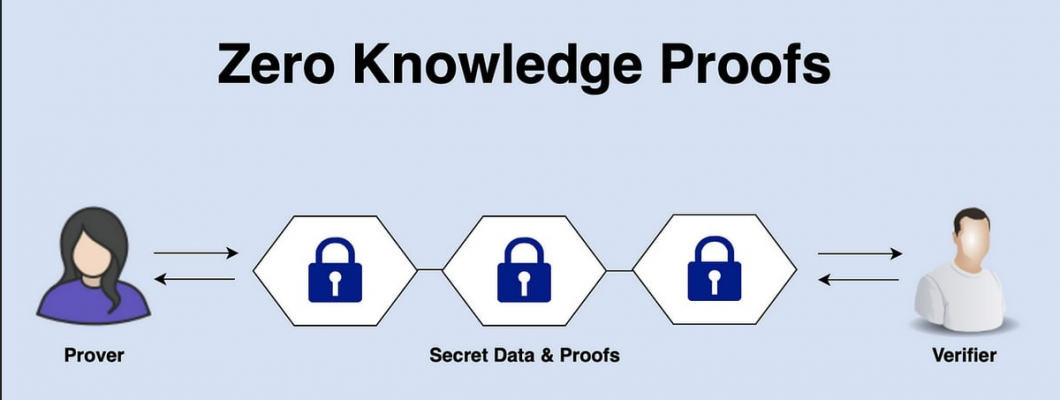
Introduction
As privacy and security become top priorities in the blockchain ecosystem, zero-knowledge proofs (ZKPs) have emerged as a revolutionary solution. ZKPs allow smart contracts to validate transactions without exposing the underlying data, ensuring confidentiality and trust simultaneously. This cryptographic innovation empowers developers to build decentralized applications (dApps) that protect user privacy while maintaining transparency and integrity. By enabling users to prove facts without revealing sensitive details, ZKPs are transforming how smart contracts operate—especially in sectors like finance, healthcare, and identity verification. As adoption grows, ZKPs are becoming essential for building the next generation of secure blockchain solutions.
As privacy and security become top priorities in the blockchain ecosystem, zero-knowledge proofs (ZKPs) have emerged as a revolutionary solution. ZKPs allow smart contracts to validate transactions without exposing the underlying data, ensuring confidentiality and trust simultaneously. This cryptographic innovation empowers developers to build decentralized applications (dApps) that protect user privacy while maintaining transparency and integrity. By enabling users to prove facts without revealing sensitive details, ZKPs are transforming how smart contracts operate—especially in sectors like finance, healthcare, and identity verification. As adoption grows, ZKPs are becoming essential for building the next generation of secure blockchain solutions.
As privacy and security become top priorities in the blockchain ecosystem, zero-knowledge proofs (ZKPs) have emerged as a revolutionary solution. ZKPs allow smart contracts to validate transactions without exposing the underlying data, ensuring confidentiality and trust simultaneously. This cryptographic innovation empowers developers to build decentralized applications (dApps) that protect user privacy while maintaining transparency and integrity. By enabling users to prove facts without revealing sensitive details, ZKPs are transforming how smart contracts operate—especially in sectors like finance, healthcare, and identity verification. As adoption grows, ZKPs are becoming essential for building the next generation of secure blockchain solutions.
What Are Zero-Knowledge Proofs?
Zero-knowledge proofs are cryptographic methods that allow one party to prove to another that a statement is true—without revealing the actual information behind it. Popular forms include zk-SNARKs and zk-STARKs, which are widely used in privacy-centric blockchain protocols.
The Role of ZKPs in Smart Contracts
Traditional smart contracts are transparent by design, which can be a limitation for privacy-sensitive applications like healthcare, finance, or identity management. ZKPs enable smart contracts to validate inputs and logic without exposing underlying data, ensuring confidentiality without sacrificing trust.
Benefits of Privacy-Focused Smart Contracts
Data Confidentiality: Prevents exposure of personal or financial information.
Regulatory Compliance: Enables privacy while following data protection laws like GDPR.
Secure Identity Management: Facilitates decentralized, anonymous identity verification.
Scalable Privacy: Combined with technologies like zk-Rollups, it improves both privacy and scalability.
Data Confidentiality: Prevents exposure of personal or financial information.
Regulatory Compliance: Enables privacy while following data protection laws like GDPR.
Secure Identity Management: Facilitates decentralized, anonymous identity verification.
Scalable Privacy: Combined with technologies like zk-Rollups, it improves both privacy and scalability.
Use Cases in the Real World
Zcash: Uses zk-SNARKs for anonymous transactions.
Aztec Protocol: Implements privacy on Ethereum.
Polygon zkEVM: Adds ZKP capabilities for confidential smart contract execution.
Zcash: Uses zk-SNARKs for anonymous transactions.
Aztec Protocol: Implements privacy on Ethereum.
Polygon zkEVM: Adds ZKP capabilities for confidential smart contract execution.
Challenges & Future Outlook
Despite their advantages, ZKPs are still computationally intensive and complex to implement. However, as tooling and adoption grow, privacy-focused smart contracts are set to become a standard in Web3.
Conclusion
Zero-knowledge proofs are unlocking a new frontier in blockchain privacy. When integrated into smart contracts, they allow for secure, decentralized applications that protect user data without compromising on transparency. As technology evolves, ZKP-powered smart contracts will be key to building the next wave of secure dApps.

Leave a Comment